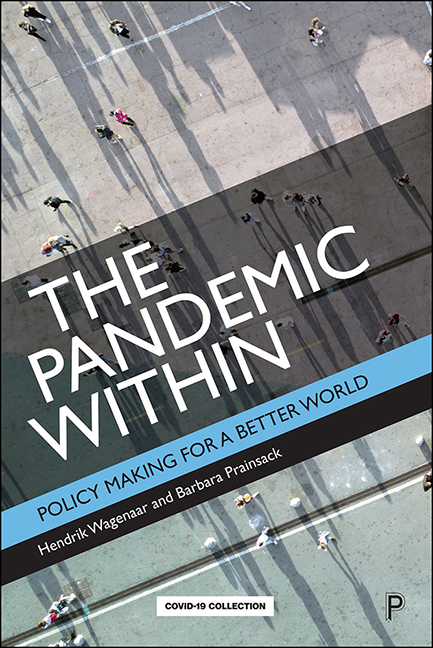Book contents
- Frontmatter
- Contents
- Acknowledgements
- 1 Introduction: The pandemic within
- 2 At home in the world: overcoming the predicament of complexity and hegemony
- 3 Ensuring a well-functioning public infrastructure
- 4 Housing is a public good, not a commodity
- 5 Redefining work and income
- 6 The return of good government
- 7 Real corporate responsibility
- 8 Money as a public good
- 9 Living in the Anthropocene
- 10 Towards an ecological society
- Notes
- References
- Index
2 - At home in the world: overcoming the predicament of complexity and hegemony
Published online by Cambridge University Press: 13 May 2022
- Frontmatter
- Contents
- Acknowledgements
- 1 Introduction: The pandemic within
- 2 At home in the world: overcoming the predicament of complexity and hegemony
- 3 Ensuring a well-functioning public infrastructure
- 4 Housing is a public good, not a commodity
- 5 Redefining work and income
- 6 The return of good government
- 7 Real corporate responsibility
- 8 Money as a public good
- 9 Living in the Anthropocene
- 10 Towards an ecological society
- Notes
- References
- Index
Summary
The human predicament
The last 40 to 50 years have witnessed extraordinary economic growth and technological development. While in many countries, particularly, but not exclusively, in the developed world, large numbers of people have experienced unprecedented prosperity and security from an array of social risks, the way we have organised our society and economy has eaten away at the very foundations that made this growth possible. These foundations are environmental, social and moral. Thousands of books, blogs and op-eds have been written to diagnose the destructive processes that have resulted in environmental degradation, unprecedented inequalities in wealth and income, the hollowing out of labour contracts and worker representation and the associated decline in wages, social misery for millions through unnecessarily tight fiscal policies, structural racism and sexism, and the erosion of democracy in many countries. It should not have taken COVID-19 for us to realise that things have to change, and that the way we organise our economy is killing people and the planet.
There are different ways to describe the problems revealed by the COVID-19 crisis – mess, wreckage, plight, policy catastrophe – each with its own distinct moral tinge and call for transformation. For reasons we explain in this chapter we have decided to settle for ‘predicament’. Trying to stave off the theological overtones that the term might generate, the social theorist William Connolly (2011) calls a predicament an ‘existential condition’. What does this mean? First, that it concerns a state or condition that we cannot walk away from and that it is, at least partly, out of our hands. It cannot be mastered (we will return to the notion of mastery in Chapter 5). This depiction tends towards the tragic – not a sentiment that we gladly evoke in our instrumental age – and not surprisingly Connolly refers to Sophocles to get his point across: ‘Our predicament involves how to negotiate life, without hubris or existential resentment, in an age that is neither providential nor susceptible to consummate mastery. We must explore how to invest existential affirmation in such a world, even if we strive to fend off its worst dangers.’ (Connolly, 2011, 98) Predicament is not fatalism, however. It redirects the focus towards the lived experience and the urge to improve things.
- Type
- Chapter
- Information
- The Pandemic WithinPolicy Making for a Better World, pp. 9 - 22Publisher: Bristol University PressPrint publication year: 2021



